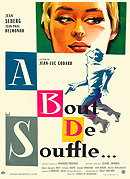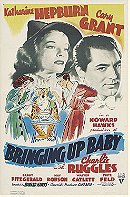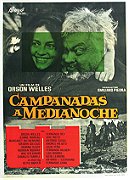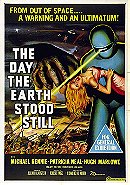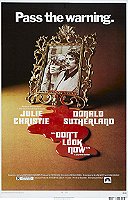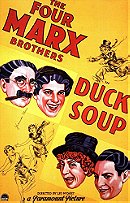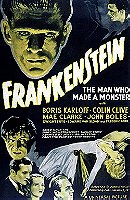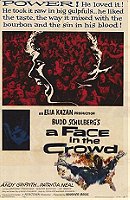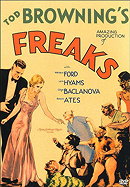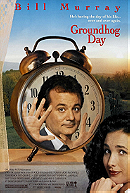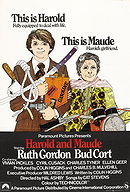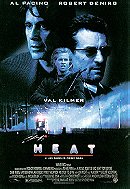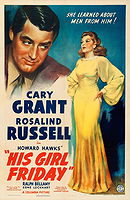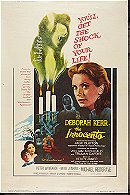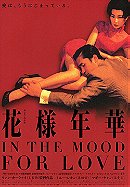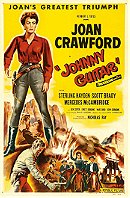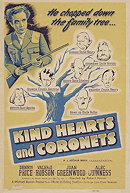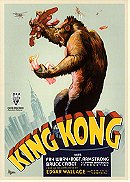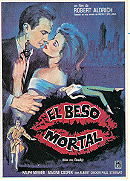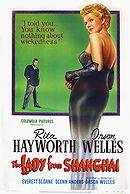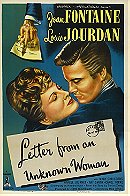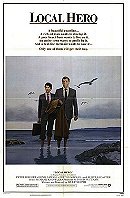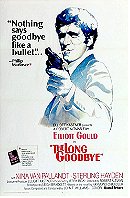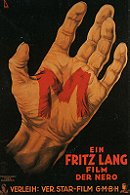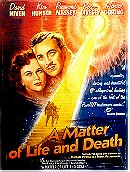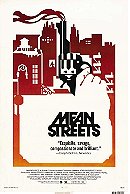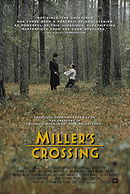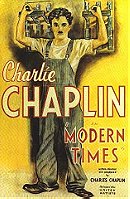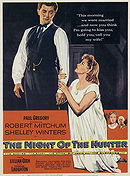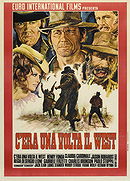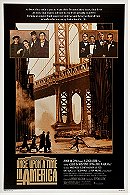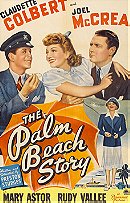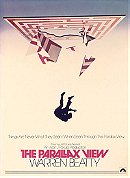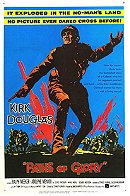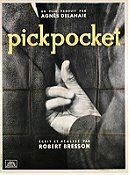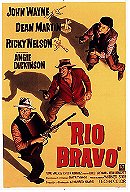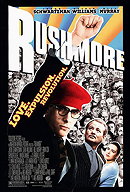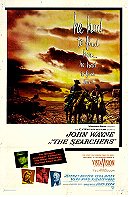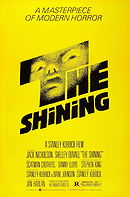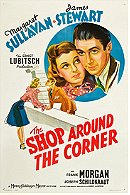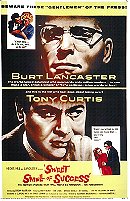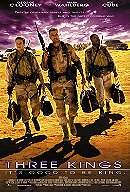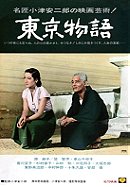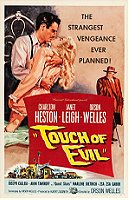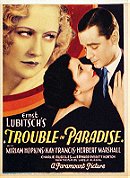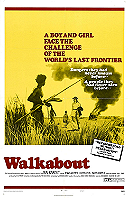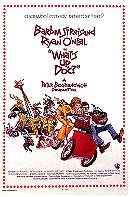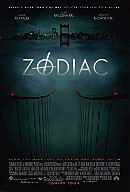50 Great Movies That Were Not Nominated For Any Os
Sort by:
Showing 50 items
Decade:
Rating:
List Type:
The Playlist compiled a list of great movies that were ignored for any Oscar nominations.
For 20 Classics Films Not Nominated for Best Picture, click here.
For 20 Classics Films Not Nominated for Best Picture, click here.
Perhaps it’s because the dust hadn’t settled on Joel and Ethan Coen’s Original Screenplay Oscar statues for “Fargo.” Or, maybe “The Big Lebowski” was too quirky and niche for voters (though even this year "Inherent Vice" had a couple of nods). In hindsight, though, nothing can really explain why the only award this comic masterpiece ended up with is Best Foreign Film from a Russian guild of film critics. And who was the Academy busy awarding as the best picture of 1998? "Shakespeare in friggin' Love."
JxSxPx's rating:


One of the single most important movies in cinema history, Jean-Luc Godard’s ultra-cool Nouveau Vague crime flick may have been too ahead of its time for the Academy. Truffaut’s “The 400 Blows” got a screenplay nod the year before, but “Breathless,” about Bogart-loving criminal Jean-Paul Belmondo and his American amour Jean Seberg, didn’t even manage a Foreign Language nomination.
One of the very greatest, if not the greatest, of the screwball comedies, Howard Hawks’ perfectly constructed picture, teaming Katharine Hepburn and Cary Grant with, among other things, a leopard and a dinosaur skeleton, was a flop on release, evidently causing the Academy to overlook it: the film went un-nominated in the year that Frank Capra’s so-so “You Can’t Take It With You” won Best Picture.
JxSxPx's rating:


Now acknowledged as one of Orson Welles’ greatest masterpieces, the director-star’s Falstaffian Shakespeare adaptation won two awards when it premiered at Cannes, but a stinking review by the New York Times’ Bosley Crowther and other American critics led to U.S. distributor Harry Saltzman essentially burying the movie, and it failed to make any Oscar impact at all (though Welles did pick up a Best Foreign Actor BAFTA nod).
JxSxPx's rating:


“Interstellar” fans complaining that the Academy has overlooked Christopher Nolan’s film in most of the major categories should take comfort that the Oscars have never been kind to science-fiction: Robert Wise’s 1951 classic about an alien visitor, reactionary humans, and a giant robot is universally acknowledged as a towering classic of the genre, but was ignored completely at awards time, bar a special Golden Globe for “promoting international understanding.”
JxSxPx's rating:


The 1970s were the most open-minded period in Academy history, but only up to a point. Nicolas Roeg’s wrenching, terrifying, sexually-charged thriller about two grieving parents (Donald Sutherland and Julie Christie) in Venice after the death of their child, didn’t receive a single nomination, in a year when “The Exorcist” and “Cries And Whispers” were up for Best Picture, and “Last Tango In Paris” for Best Director — despite the film picking up seven BAFTA nominations at the same time. To this day, Nicolas Roeg has never been Oscar-nominated.
JxSxPx's rating:


Duck Soup (1933)
Obviously complaining that a Marx Brothers film was overlooked by awards bodies is a bit like getting in a huff because “Zoolander” or “Anchorman” suffered the same fate, but even so, eighty years on, the total snubbing of the comedy legends’ masterpiece “Duck Soup,” a hilarious geo-political satire, still stings. The Academy probably felt so too, eventually: Groucho Marx was final given an honorary award in 1974.
JxSxPx's rating:


Frankenstein (1931)
Sixty years on, Ian McKellen would pick up an Oscar nomination for playing “Frankenstein,” director James Whale in Bill Condon’s “Gods & Monsters,” but the real Whale wasn’t as lucky: his still-definitive take on Mary Shelley’s horror classic was completely ignored at the 5th ever Academy Awards. One might point to the Academy’s anti-genre bias, but this was also the year that Fredric March won Best Actor for “Dr. Jekyll & Mr. Hyde.” Whale’s superior sequel “Bride of Frankenstein” did slightly better four years later, with a single sound nod.
JxSxPx's rating:


A Face in the Crowd (1957)
Though he’d become more divisive in later years (notable names like Nick Nolte and Ian McKellen refused to applaud when he was awarded an Honorary Oscar in 1999), Elia Kazan naming names to McCarthy didn’t prevent him from remaining an awards juggernaut even after his testimony. But one of Kazan’s best, 1957’s winningly sour media fable “A Face In The Crowd,” starring Andy Griffith, was a notable exception. Middlingly reviewed on release, it made no impact with the Academy, despite coming off the back of “On The Waterfront,” “East Of Eden” and “Baby Doll."
JxSxPx's rating:


Freaks (1932)
As we’ve already seen with “Frankenstein,” it’s very, very rare that the Academy go for horror fare, unless it’s on the classier side of the spectrum (see “The Exorcist,” “Silence Of The Lambs,” “Black Swan”). So, given that Tod Browning’s carnival-set chiller “Freaks” is one of the most terrifying films ever made, it’s not surprising it was passed over. And even less so when you consider that the film, heavily cut in order to be released, was mostly poisonously received, and a major flop on release, until it was reclaimed in the 1960s.
JxSxPx's rating:


Like a metaphysical Frank Capra, Harold Ramis’ masterpiece “Groundhog Day” is about as close as we get to a perfect latter-day comedy (or at least it’d be perfect if someone else was in the Andie MacDowell role). Despite good reviews and strong box office, the film was entirely ignored by awards bodies: partly, one imagines, due to its early-year February release date, and partly due to the Academy’s general aversion to comedy.
JxSxPx's rating:


Harold and Maude (1971)
Hal Ashby was already an Oscar winner (for editing “In The Heat Of The Night”) by the time he became a director, which perhaps explains why the Academy took a little while to cotton on to his brilliance. Most of his 1970s classics like “The Last Detail,” “Shampoo” and “Coming Home” received multiple nominations (the latter getting Ashby his only directing nod), but arguably his finest film, quirky young-guy/older-lady romance “Harold & Maude,” received nothing (the film was admittedly greeted with puzzlement at the time by many critics).
JxSxPx's rating:


You’d think Al Pacino and Robert De Niro working on the same film for the second time in their careers (and face-to-face for the very first time) would get some award traction, right? How about Michael Mann working at the apex of his powers? “Heat” is to L.A. crime films what “Citizen Kane” is to films period, but, hey, 1995 was a crazy year in film. Mel Gibson was beloved, and Nicolas Cage was an Oscar winning actor. Nope, see, we tried, but that still doesn’t explain this absurd lapse.
JxSxPx's rating:


Remember when we said that “Bringing Up Baby” was the greatest screwball comedy ever? “His Girl Friday,” a gender-swapped adaptation of stage classic “The Front Page” starring Cary Grant and Rosalind Russell, also from director Howard Hawks, is right up there too. But like ‘Baby,’ the film was completely ignored by Oscar voters: something that became a running theme for the director, who despite being one of classic Hollywood’s finest, was only ever nominated once, for “Sergeant York” in 1942.
JxSxPx's rating:


The Innocents (1961)
Again, horror is never a big pull for the Academy, but you’d think that Jack Clayton’s “The Innocents” — an adaptation of Henry James’ “The Turn Of The Screw,” with a screenplay by Truman Capote, and starring six-time Oscar nominee Deborah Kerr — might have been an exception. But despite some stellar reviews (Truffaut called it “the best English film after Hitchcock went to America”), two BAFTA nods and the National Board of Review prize for Best Director, Oscar neglected to give a single nomination to one of the greatest ghost stories ever.
JxSxPx's rating:


In the Mood for Love (2000)
Wong Kar-Wai’s tender, sensual romance “In The Mood For Love” is often called one of the very best films of the 2000s: indeed, it was ranked the highest of any film from that decade in the most recent Sight & Sound poll. But it proved a little too artsy for the Academy, who gave the Best Foreign Language Film prize that year to “Crouching Tiger Hidden Dragon,” leaving Wong’s film without a single nomination (indeed, none of his films got attention from the Oscars until two nominations last year for “The Grandmaster”).
Johnny Guitar (1954)
Despite, or perhaps because of it being the most purely American of genres, the Academy have generally looked down on Westerns. Only three films in the genre (“Cimarron,” “Dances With Wolves” and “Unforgiven”) have ever won Best Picture. As such, it shouldn’t be surprising that Nicholas Ray’s “Johnny Guitar,” the Joan Crawford-starring weird, offbeat, feminist entry in the chronicle of America’s frontier, was totally excluded from the Oscars that year (though the film was badly reviewed at the time, only gaining in critical standing over time).
JxSxPx's rating:


Kind Hearts and Coronets (1949)
Comedy is notoriously resistant to traveling, which is perhaps why, aside from some mild success for “The Lavender Hill Mob” and “The Ladykillers,” the classic comedies by Ealing Studios never made much of a splash at the Oscars. The biggest casualty was the pitch-black and brilliant “Kind Hearts & Coronets,” about a man’s bid to ascend to the aristocracy by murdering multilple members of the same family, all played by Alec Guinness. Perhaps the film itself being passed over would be excusable, but that Guinness wasn’t nominated is a giant injustice.
JxSxPx's rating:


King Kong (1933)
As 2017’s “Kong: Skull Island” indicates, giant ape King Kong is one of cinema’s most enduring creations, but his first outing, in Merian C. Cooper and Ernest B. Schoedsack’s 1933 film, came up empty with the Oscars. One would like to put it down to the film being a pure genre picture, but both the inferior 1976 remake, and Peter Jackson’s slightly less inferior 2005 version, received more Academy recognition (though admittedly a visual effects category didn’t exist until 1938).
JxSxPx's rating:


Kiss Me Deadly (1955)
Film noir was another genre that never really clicked with the Academy, and Robert Aldrich’s killer nuclear-paranoia-fuelled Mike Hammer mystery “Kiss Me Deadly” was just one example. Despite great reviews, the film was seemingly deemed to be too much of a B-movie to warrant any nominations, particularly after it came in for criticism by the Kefauver Committee into organized crime. History had the last laugh though, with the film being selected for the Library Of Congress in 1999 (something yet to happen for most of that year’s Best Picture nominees, including “Mister Roberts” and “Love Is A Many-Splendored Thing”).
JxSxPx's rating:


The Lady from Shanghai (1947)
Aside from “Citizen Kane” (and even that only won one of its nine nominations) and four nods for the compromised “Magnificent Ambersons," Orson Welles never had much luck with the Academy, and that started with “The Lady From Shanghai” — the exotic noir picture starring Rita Hayworth is now deemed one of the director’s best, but received mixed reviews at the time, and didn’t come within a sniff of an Oscar at any point.
JxSxPx's rating:


Letter from an Unknown Woman (1948)
Max Ophüls’ melodrama, starring Joan Fontaine and Louis Jourdan (who passed away this past week), and based on a novella by “Grand Budapest Hotel” inspiration Stefan Zweig, remains wildly underrated today (it only hit home video in 2012). So it’s not exactly a shock to learn that it wasn’t appreciated in its own time either: despite being what you’d imagine to be firmly within the wheelhouse of the 1948 Academy, it was totally overlooked in favor of lesser pictures like “Hamlet,” “Johnny Belinda” and “The Snake Pit.”
JxSxPx's rating:


“The British are coming,” announced “Chariots Of Fire” screenwriter Colin Welland at the 1982 Oscars when his film swept the board. But the reaction proved premature, if “Local Hero” is anything to go by. Bill Forsythe’s delicate Ealing-indebted comedy-drama about an oil executive (Peter Riegert) sent to a tiny Scottish island, which came from ‘Chariots’ producer David Puttnam, had rave reviews and seven BAFTA nominations, but didn’t appear to register on the Oscar radar, with “Amadeus” dominating instead.
The Long Goodbye (1973)
Let’s play a little game called “What’s Crazier?” Is it: Legendary Robert Altman was 0 for 5 in directing nominations? Or, Robert Altman wasn’t even nominated for “The Long Goodbye?” It’s a tricky one, because either way, shit’s crazy. The screen incarnation of gumshoe Philip Marlowe, as portrayed by Elliott Gould and guided by Altman’s energetic and organic camera, is easily one of the director’s best efforts, and Academy members completely ignored it. Madness.
JxSxPx's rating:


M (1931)
Fritz Lang was never nominated for an Oscar, which is, in and of itself, an absurd thought (not even an Honorary Oscar? Come on!) Looking through his inestimable filmography, though, if we were forced to pick one that should’ve been a shoe-in for a win (let alone a nomination), it’s easily his most praised and popular, film noir anti-Fascist masterpiece “M.” Oscar was still an infant, which is the only legit excuse we can muster for this gargantuan omission.
JxSxPx's rating:


Despite their late-in-the-game adoption by Martin Scorsese, among others, Powell & Pressburger had mixed success with awards: Powell never won an Oscar, only “49th Parallel” and “The Red Shoes” were nominated, and many of their best films, including “A Canterbury Tale,” “I Know Where I’m Going!” and “The Life And Death Of Colonel Blimp” weren’t nominated for anything. But the most egregious snub is “A Matter Of Life & Death” — the pair’s wondrous, fantastical love letter to U.S./U.K. relations and one of the greatest films ever made.
JxSxPx's rating:


Before Martin Scorsese finally received that Oscar (for “The Departed,” in 2007), his never receiving one became a joke of giant proportions ("Three Six Mafia: one. Martin Scorsese: zero" Jon Stewart joked at the ceremony in 2006). Of course, his first nomination came in 1982 for “Raging Bull,” but we’d say it’s the one that made his name synonymous with the decadence of New York City that should’ve been his first, or at least that the movie should have been nominated for something, dammit.
JxSxPx's rating:


Miller's Crossing (1990)
Post “Fargo” and “No Country For Old Men,” the Coens are a real Oscar force, able to get even a difficult movie like “A Serious Man” a Best Picture nomination. But it took them a little while to crack the Academy’s radar (the Cannes-approved “Barton Fink” picking up their first notable nods), with the most disappointing snub probably being “Miller’s Crossing.” The period gangster tale is one of our absolute favorite Coen pictures, and should have been an easier sell, but nevertheless came up short.
It took AMPAS most of his life to recognize Charlie Chaplin, eventually granting the comic great an Honorary Award in 1972, after a previous one in 1929. They weren’t totally resistant to him: “The Great Dictator” got five nods, including Best Picture, but most of his work was ignored, most notably his great industrialization comedy, “Modern Times.” The film was mostly applauded, but the leftish politics on display (and unfashionable mostly silent vibe) saw it underperform in the U.S., and fail to get any Oscar recognition.
JxSxPx's rating:


The Night of the Hunter (1955)
The one and only directorial effort from Charles Laughton (mostly known as a fantastic actor, and Best Actor Oscar winner for “The Private Life of Henry VIII”) is today regarded as one of (if not the) greatest feature debuts of all time. With Stanley Cortez’s scintillating cinematography, Robert Mitchum’s instantly iconic performance, and James Agee’s sublime screenplay, “The Night of the Hunter” is surely one of the Academy’s biggest blunders.
JxSxPx's rating:


Huh? One of the most lauded Westerns of all time didn’t budge the voters’ needles, but “Oliver!” walks away with Picture and Director? So wrong, it hurts. From its scorching cinematography, to Sergio Leone’s perfect direction, Ennio Morricone’s iconic soundtrack, and Henry Fonda’s subtly masterful performance, “Once Upon a Time In the West” had a gamut of reasons for nominations. Another case of voters hitting that snooze button one too many times.
JxSxPx's rating:


Here’s that Sergio Leone-Ennio Morricone team-up again, totally neglected by the goons who make up the Academy. Much like ‘West,’ “Once Upon a Time in America” showed the Italian director digging deep into Western culture to come up with a jillion number of cinematic rubies, diamonds, and emeralds. A classic that defines the term “classic” with every frame, something went terribly, horribly, off-course with the votes in 1985 (though of course, it didn't help that the film was initially released in a massively compromised form).
The Palm Beach Story (1942)
Another comedy great mostly overlooked by the Academy — spotting a trend, are we? — Preston Sturges only picked up three nods and one win, all for screenplays, for his work, and many of his films weren’t nominated for anything. One of the most notable is his great “The Palm Beach Story,” starring Joel McCrea and Claudette Colbert as two sets of twins embroiled in an unconventional marriage. The film’s a perfectly-engineered comedy machine, but like the previous year’s “Sullivan’s Travels,” was neglected by Oscar.
JxSxPx's rating:


One of the very best of the paranoid 1970s conspiracy thriller sub-genre, Alan J. Pakula’s “The Parallax View” is impeccably crafted, gripping, resonant, and features a great performance from one of Hollywood’s favorite stars: Warren Beatty. But unlike the two films in the unofficial trilogy that surround it, “Klute” and “All The President’s Men,” it was snubbed at awards time. Was it too much of a genre picture? Or did it hit a little close to home for the establishment?
JxSxPx's rating:


Paths of Glory (1957)
This is just one of ten Stanley Kubrick bonafide masterpieces that he didn’t win a directing Oscar for. No biggie. How “Paths of Glory,” the epitome of the anti-war film, with themes, performances, and techniques forever etched in cinema history, failed to land a single nomination, while “Gigi” went on to win Best Picture and Director, will be one of the greatest AMPAS mysteries of all time.
JxSxPx's rating:


Pickpocket (1959)
Austere, unglamorous, and soulful, it’s fairly predictable that Robert Bresson wasn’t really in the Oscar wheelhouse. But given that he was making films at a time when people like Bunuel and Bergman were picking up nominations not just in the Foreign Language Films category, but in mainstream ones too, it’s sort of shocking that not a single Bresson film, from breakout “Diary Of A Country Priest” onwards, was recognized by AMPAS in any way. It’s one of the more notable omissions on their world cinema track record, and you'd think even the more accessible "Pickpocket" would have snuck in somewhere.
Rio Bravo (1959)
Poor Howard Hawks again. He never found much luck with his screwball comedies (see above), and even when he made as rollicking and entertaining a Western as “Rio Bravo,” the Academy just stared at him blankly and failed to nominate the film, now seen as a classic, for anything. Perhaps it was a political gesture. The film was made as a response to four-time Oscar winner “High Noon,” which star John Wayne saw as “un-American,” but support for HUAC and the black list was starting to collapse, and the film may not have met the mood of the country.
JxSxPx's rating:


Rushmore (1998)
After years of only picking up Screenplay nominations, “The Grand Budapest Hotel” marks Wes Anderson’s acceptance into the Academy’s tent in a big way this year, being, with “Birdman,” the film with the most nominations, with nine. That’s nine more than Anderson’s breakthrough, “Rushmore,” managed back at the 1999 ceremony. Despite critical plaudits, the film didn’t pick up a single nod (you’d have though Bill Murray would have been a Supporting Actor lock, but apparently not).
JxSxPx's rating:


Frequently named as one of the greatest American movies ever made, “The Searchers” (it’s Sight & Sound’s number seven, Cahiers du Cinema’s number ten, and the AFI’s number twelve) was a hit at the time, but again fell victim to the Academy’s Western curse. John Ford won seven Oscars in total, including a record four Best Director trophies, but his greatest masterpiece had no nominations at all (and this in a year dominated by big-budget spectacle like “The Ten Commandments,” “The King And I,” and winner “Around The World In 80 Days.”)
JxSxPx's rating:


One of the biggest jokes, and painful ironies, of film awards history is that Kubrick was nominated for a Razzie, not an Oscar, for “The Shining.” Lol to the power of lol, ad infinitum. Even given the Academy's afore-stated distaste for horror films, you'd think this Stephen King adaptation would have picked up something somewhere, even if only in a technical capacity (this is a film whose goddamn carpeting has become iconic)
JxSxPx's rating:


The Shop Around the Corner (1940)
It’s borderline unthinkable to imagine a romantic comedy up for Best Picture now, but in the 1930s and 1940s, it was relatively common for them to win, let alone be shortlisted. Which makes it all the more puzzling that Ernst Lubitsch’s “The Shop Around The Corner,” one of the most perfect examples of the genre, would be overlooked. Was it the film’s celebration of a storybook Europe soon after the outbreak of war there? Or just a film seen as being too frothy for Academy tastes?
JxSxPx's rating:


Stardust Memories (1980)
Few would argue that Woody Allen has been poorly treated by the Academy. The writer/director/star has four Oscars, and another 20 nominations, despite the fact that he never turns up. Which makes it baffling that the Academy would totally snub “Stardust Memories,” one of his best movies, while nominating him for disposable, middling fare like “Mighty Aphrodite” and “Match Point.” Was it deemed too self-indulgent?
JxSxPx's rating:


Sweet Smell of Success (1957)
In fairness, were a film like “Sweet Smell Of Success” to debut at some festival today (and, oh, would that it did), it’d likely pick up strong reviews, but be dismissed at the end of 140 characters by most critics as ‘not an awards movie.’ It’s true that Alexander Mackendrick’s masterpiece is one of the most savage and sour satires of showbusiness ever made, and there may have been a reluctance to bite the hand feeding voters, but it’s still a little shocking that it got absolutely no nominations, particularly given that, after a toxic preview screening, the film actually picked up good reviews.
JxSxPx's rating:


These days, David O. Russell is an absolute Oscar magnet. His last three films have earned 25 nominations in the last four years, and “American Hustle” would have been the first movie since “Reds” to pick up nods in all four acting categories, had Russell’s own “Silver Linings Playbook” not managed the feat a year earlier. But when the filmmaker was a younger, unrulier (and better?) talent, he didn’t have the same luck, and the brilliant action-comedy “Three Kings” wasn’t nominated for anything. You could argue that 1999 was one of the most competitive years in recent memory for awards movies, but we’d counter that this was a year when “The Cider House Rules” received seven nods.
JxSxPx's rating:


Seeing as how thoroughly Japanese the late master Yasujiro Ozu was, he probably never lost a blink of sleep for being overlooked by AMPAS throughout his whole career. Forever to remain his magnum opus, “Tokyo Story” is like a delicate, inexplicably potent flower that the Academy plainly found too alien for their tastes (though it's at least something of an excuse that the film was released in the U.S. almost two decades after its hometown premiere).
Touch of Evil (1958)
“Orson Welles at the Oscars” sounds like a title of a great documentary, except its running length would be, like, 12 minutes. You’ll notice we have much love for the man outside the obvious mammoth “Citizen Kane,” as his films almost always reached spectacular levels of greatness, only to end up spectacularly snubbed. Film noir classic “Touch of Evil” is no exception.
JxSxPx's rating:


Billy Wilder’s films generally got the Oscar love they deserved (especially given that they were comedies), but his mentor Ernst Lubitsch wasn’t so lucky. The great director did receive three Best Director nominations, but many of his films went unrecognized, and along with “The Shop Around The Corner,” the most anger-inducing absence was his sparkling con-caper “Trouble In Paradise,” one of his very finest, and yet a film that didn’t pick up a single nod (even another of his masterpiece, the poorly-received-at-the-time “To Be Or Not To Be,” was on the Score shortlist).
JxSxPx's rating:


As we said much earlier, Nicolas Roeg has never been Oscar nominated, and though that’s sometimes understandable (“Performance,” for instance, isn’t really an AMPAS movie), in other cases it’s more baffling. His early film “Walkabout,” about two children lost in the Australian outback, is perhaps the strangest one. You can perhaps excuse its Best Picture absence, but you’d have thought Cinematography, Editing, or Best Actress would have been in play. Sadly, it seems that Roeg was just too experimental for Academy tastes.
These days, the Oscar like to honor films paying tribute to the Golden Age of Hollywood — just look at the success of “The Artist.” But in the 1970s, it seems like they were looking forward rather than back. Peter Bogdanovich’s screwball comedy homage “What’s Up Doc” was a huge hit, but like its inspiration, “Bringing Up Baby,” proved too light to register in a year where “The Godfather” was the major awards juggernaut.
JxSxPx's rating:


Zodiac (2007)
Despite the director’s own self-evident contempt for the circuit, David Fincher’s now thrown off his enfant terrible status and regularly sees his films nominated for Oscars. Even a film as dark and pulpy as “The Girl With The Dragon Tattoo” won a few, but not so Fincher’s finest film. Despite “Zodiac” arguably being as awards-friendly as anything he’s made (at least from a technical viewpoint), the film was overlooked. One could perhaps blame the film’s release, in March of ’07, but one suspects it wouldn’t have done that well with AMPAS whenever it landed.
 Login
Login
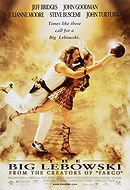
 4301
4301
 7.9
7.9
 8.1
8.1
